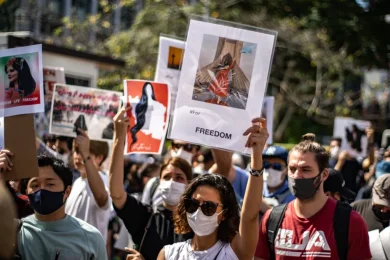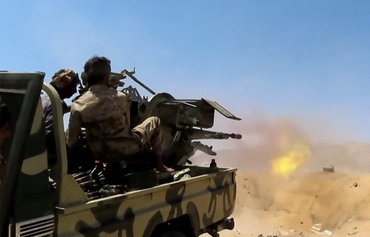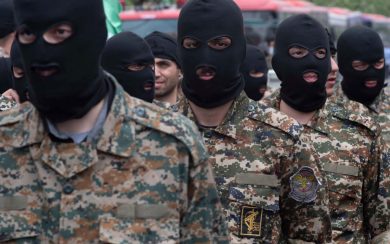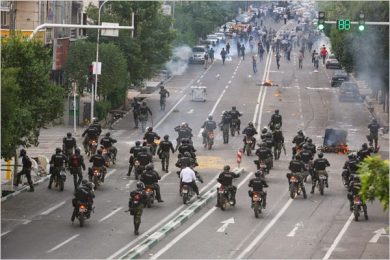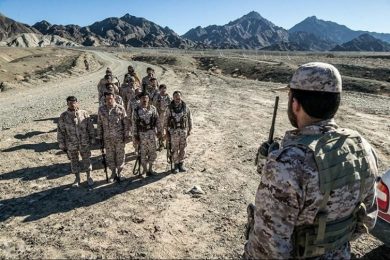In the Islamic Republic of Iran, freedom of the press is severely curtailed, with journalists regularly facing intimidation, arrest, torture, and censorship. At the center of this repression is the Islamic Revolutionary Guard Corps (IRGC)—a powerful paramilitary organization that acts not only as the regime’s military arm but also as a guardian of ideological control, especially in the media landscape.
The IRGC has established a comprehensive media control apparatus, enabling the regime to shape public perception, crush dissent, and suppress any independent reporting. This report explores how the IRGC exerts media control, targets journalists, and uses state propaganda as a tool of authoritarian governance.
1. The IRGC’s Media Empire
A. State Media Ownership and Control
The IRGC exerts significant influence over Iran’s state-run media, particularly the Islamic Republic of Iran Broadcasting (IRIB), the country’s main television and radio network. Although IRIB is formally under the control of the Supreme Leader, the IRGC plays a pivotal role in guiding its content, especially when it comes to national security, protests, and foreign policy.
IRGC-linked entities also fund and operate dozens of print and digital publications, news websites, and broadcast outlets. These include:
• Fars News Agency – A semi-official outlet closely tied to the IRGC, known for echoing state propaganda and discrediting dissidents.
• Tasnim News Agency – Founded by IRGC affiliates to promote the regime’s narrative and counter what it calls “Western misinformation.”
B. Propaganda Operations
The IRGC uses its media arms to:
• Glorify military operations, regional interventions, and domestic crackdowns.
• Label dissidents and journalists as traitors, foreign agents, or enemies of Islam.
• Promote conspiracy theories that frame protests and resistance as foreign-instigated.
2. Targeting Journalists: Arrests, Torture, and Intimidation
A. Criminalizing Journalism
Independent journalism in Iran is routinely equated with espionage, sedition, or anti-Islamic activity. The IRGC frequently arrests reporters under vague charges like:
• “Propaganda against the state”
• “Collaboration with hostile governments”
• “Acting against national security”
These charges are used to silence journalists covering sensitive topics such as:
• Women’s rights movements
• Corruption within the IRGC or government
• Economic protests
• Human rights abuses
B. High-Profile Cases
Niloofar Hamedi and Elaheh Mohammadi
These two journalists were among the first to report on Mahsa Amini’s death, which sparked mass protests in 2022. Both were arrested by IRGC intelligence agents, placed in solitary confinement, and charged with “collaborating with hostile governments.”
Roxana Saberi and Jason Rezaian
These dual-national journalists were detained by the IRGC on espionage charges, despite lacking any credible evidence. Their arrests sent a clear message: anyone reporting critically—foreign or local—is at risk.
C. Torture and Coerced Confessions
Journalists held in Evin Prison and other IRGC-controlled facilities report:
• Physical abuse and torture
• Psychological intimidation
• Forced televised confessions
• Denial of legal counsel and fair trials
These tactics are not only intended to punish, but also to intimidate other journalists and discredit their work in the eyes of the public.
3. Controlling the Narrative: Internet Censorship and Surveillance
A. Cyber Units and Surveillance
The IRGC runs a specialized Cyber Unit tasked with monitoring, tracking, and infiltrating:
• Independent media platforms
• Social media activity
• Messaging apps like Telegram and WhatsApp
This unit collaborates with the Ministry of Intelligence to identify and arrest online journalists and bloggers.
B. Internet Shutdowns
During nationwide protests, the IRGC often orders complete internet blackouts, effectively silencing the media and blocking citizen reporting.
These shutdowns serve multiple purposes:
• Prevent the spread of protest videos and reports
• Disrupt journalists’ access to international platforms
• Obstruct coordination among activists and reporters
C. Digital Propaganda
The IRGC also employs cyber armies and bot networks to flood platforms with:
• Fake news
• Pro-regime narratives
• Attacks on journalists and activists
This is a form of digital warfare aimed at creating confusion, suppressing truth, and dominating the online information space.
4. Impact on Press Freedom
A. Iran’s Global Press Freedom Ranking
According to Reporters Without Borders (RSF) and Committee to Protect Journalists (CPJ):
• Iran consistently ranks among the worst countries in the world for press freedom.
• The IRGC is often cited as a key enforcer of censorship and repression.
• Dozens of journalists are currently imprisoned, with many more in exile or forced into silence.
B. Climate of Fear and Self-Censorship
Due to the IRGC’s influence:
• Many journalists resort to self-censorship to avoid retaliation.
• Media outlets steer clear of red-line topics, including the IRGC itself.
• Whistleblowers and sources fear contacting reporters due to mass surveillance.
5. International Reactions and Responsibilities
A. Calls for Sanctions and Accountability
Governments and human rights groups have urged:
• Designation of the IRGC as a terrorist organization in more countries.
• Sanctions on IRGC-linked media outlets and individuals responsible for targeting journalists.
• Release of all imprisoned journalists and protection of press freedom in Iran.
B. Global Solidarity with Iranian Journalists
International journalists and media organizations have:
• Launched campaigns calling for the release of jailed Iranian reporters.
• Provided platforms for Iranian exiled journalists to continue their work.
• Highlighted the IRGC’s role in state propaganda and media repression.
Conclusion
The IRGC’s control of the media and systematic silencing of journalists represent a grave threat to truth, accountability, and democracy in Iran. From arrests and torture to censorship and propaganda, the IRGC has created a climate of fear and silence designed to shield the regime from scrutiny and resistance.
Join Our Newsletter!
Stay informed with the latest updates, news, and ways to take action in the fight for justice and global security. Sign up now to get updates delivered straight to your inbox!

